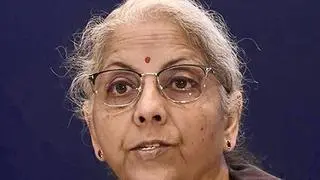Biomass power producers are in a quandary with input costs, operations and maintenance costs growing and tariff structure remaining stagnant, thereby making many projects across the country financially unviable.
The representative body of biomass producers, the Indian Biomass Power Association has written a letter to the Union Minister for New and Renewable Energy, Dr Farooq Abdullah, seeking his attention and intervention in addressing their concerns.
Nearly half of the installed capacity of 1,100 MW across several States is lying idle and there is demand-supply mismatch, according to Mr D. Radhakrishna, Secretary-General of IBPA.
Representatives of the association and biomass producers told Business Line that the situation needs to be addressed immediately as the recent requests made to the Central Electricity Regulatory Commission (CERC) have not been successful.
The producers use a wide range of agriculture waste such as rice and coconut husk and forest waste as feedstock and the prices of these are firming up.
As per the arrangement, price revision was allowed once in five years. This has been recently brought down to three and yet is not adequate, they contended.
Varying cost
The Managing Director of Orient Green Power, Mr T. Krishna Kumar, said that the cost of production of power for biomass plants varies from State to State with marginally higher rates in Maharashtra and relatively lower rates in Andhra Pradesh.
Yet, the current tariff of about Rs 4 a unit is inadequate. These projects would be financially viable if the tariff is about Rs 5.75 to 6 a unit.
The Managing Director of Shalivahana Green Power, Mr M. Komariah, said only plants with small capacities are viable. The moment the project size is touches 10 MW and above, it becomes difficult to manage at the existing tariff structure.
Across States
The Shalivahana Group, which is a player in the biomass and renewable energy sector, has a total installed capacity of 100 MW spread across Andhra Pradesh, Madhya Pradesh and Odisha.
This makes the pricing of feedstock and tariffs in various States another tough issue, he said.
Pricing mechanism
Mr Krishna Kumar said that the pricing mechanism and tariff structure have to be dynamic so that both the developers and end users benefit. IBPA has called for the Centre's intervention to resolve their issues and ensure that the pants run at their capacity and provide some relief to consumers.







Comments
Comments have to be in English, and in full sentences. They cannot be abusive or personal. Please abide by our community guidelines for posting your comments.
We have migrated to a new commenting platform. If you are already a registered user of TheHindu Businessline and logged in, you may continue to engage with our articles. If you do not have an account please register and login to post comments. Users can access their older comments by logging into their accounts on Vuukle.